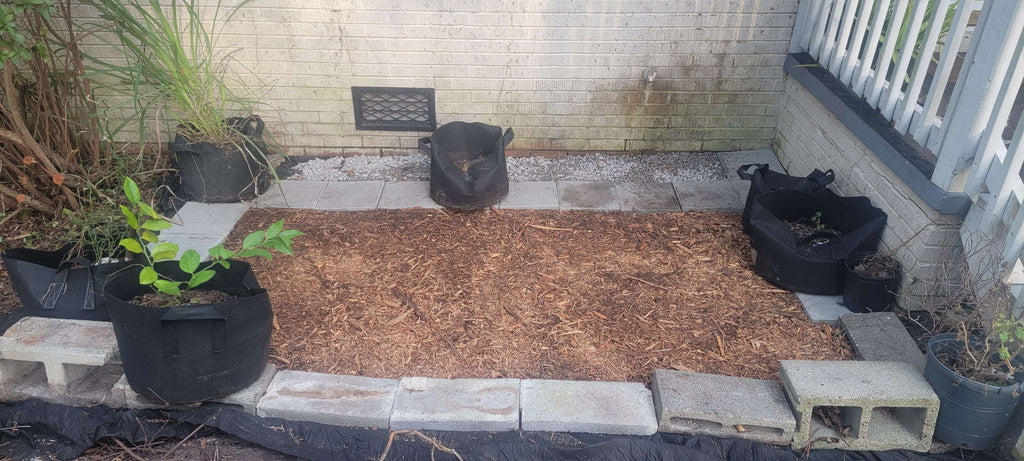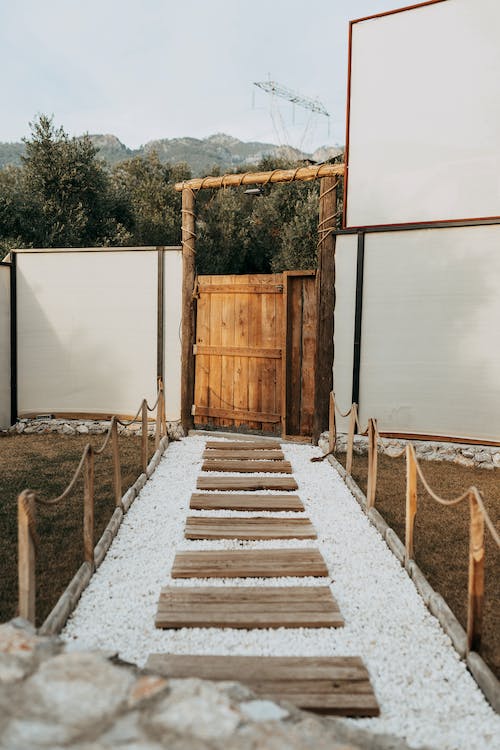
It’s December, it’s cold, and many of our gardens are quiet right now. While there are many garden projects we can do—caring for indoor plants, starting seeds, helping out birds and other wildlife—the bulk of the outside work is done for the year. However, it might be time to address some landscaping or hardscaping issues—including refreshing the look of our outdoor spaces with some additional ground cover. While mulch and gravel are both good options for filling in a flower bed, pathway, or patio, they have each have distinct characteristics and one might be preferable depending on the space in question. So, as always, let’s dig in and discuss mulch vs graven and which one is right for you.
We’ve written about mulch before, as it’s a popular choice for vegetable gardens and organic/natural process gardeners. Mulch has a number of attributes that must be considered when selecting it for your space.
- Mulch retains moisture, which might be good or bad depending on the space in question. As mulch prevents moisture from evaporating out of the soil so quickly, it might be a great choice in a garden where you want to water less often. On the other hand, if drainage is an issue, mulch might not be the right choice.
- Mulch breaks down over time, which both enriches the soil and requires you to replace your mulch occasionally. This can be helpful for your plants, as the decaying mulch functions as a soil amendment, but it also creates additional work year after year.
- Mulch moderates soil temperatures, which just like its moisture retention might be a plus or a minus depending on your situation. Mulch can help keep soil cooler in hot weather, and mitigate the effects of cold weather by holding heat in the soil. Applied too early in the spring, however, mulch can slow down the soil from warming, delaying blooming and fruiting.
- Mulch is affordable and easy to install, which can be a real blessing for DIY landscaping, smaller spaces, and those of us working with a constrained budget.

So now that we know a bit more about mulch, what about gravel? Again, gravel might be the right choice, but there are a few things to know when making the decision to use gravel in your garden.
- Gravel is long-lasting, which has some obvious appeal. If you’re putting in permanent or semi-permanent landscaping, gravel can reduce your long-term workload. However, for vegetable gardens, annual flower beds, and other spaces that refresh regularly gravel probably isn’t the right choice.
- Gravel promotes drainage—it’s rock, and rock doesn’t absorb much water when compared to mulch. As with mulch, this might be a plus or a minus depending on your space—if you need to drainwater away or you’re not worried about keeping moisture in the soil, gravel is a good option. If you’re trying to support soil moisture, another choice might be better.
- Gravel can affect your soil pH, which may or may not matter depending on the role it fills. Different gravel materialsmay make your soil more acid or more alkaline, so make sure you’ve had your soil tested, know what you’ll be trying to grow in it, and understand how the gravel you’ve selected will affect your soil chemistry.
- Gravel comes in a (bewildering) variety of shapes, colors, sizes, materials—and costs. While that gives us a huge number of options, as a semi-permanent feature the gravel you choose today may restrict the ideas you can implement a few years from now. Likewise, while gravel is long-lasting, it’s also much pricier than many other options.

Properly installed, both mulch and gravel may be a great addition to our gardens, but we need to understand the characteristics of each of them, take a look at our plants for our spaces, and then choose according to what we need. We hope this blog helps you understand the pros and cons of mulch vs. gravel, and guides you toward a successful choice for your garden!

Leave a comment